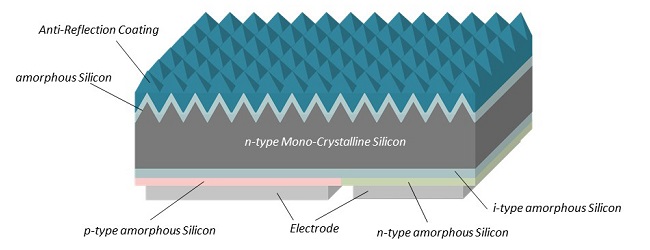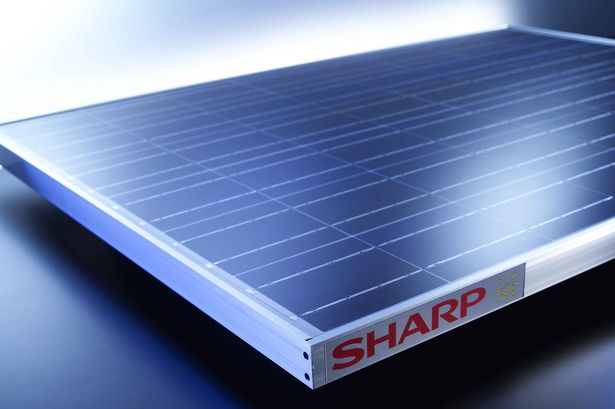Sharp has set a new efficiency record for a full size (six inch) silicon solar cell. A conversion efficiency of 25.09%, confirmed by JET, was achieved using a heterojunction structure – an amorphous silicon layer on the surface of the monocrystalline cell – and a back-contact structure.

These technologies are utilized in Sharp’s Black Solar modules. Sharp says it will now work towards achieving even higher conversion efficiencies. This efficiency milestone was achieved with support from Japan’s New Energy and Industrial Technology Organization.
Following a downturn in Japan’s solar market, where Sharp previously saw most of its module sales, the company has moved its ambitions downstream, where it is developing several large-scale projects in Southeast Asia, including a 48 MW power plant in Vietnam.
The new efficiency record comes as the industry is beginning to show an interest in heterojunction (HJT) technology beyond niche high efficiency applications.
Enel subsidiary, 3SUN is in the process of converting its amorphous silicon factory in Sicily to produce bifacial HJT modules, and Russian module producer, Hevel made a similar move last year, and now plans to increase the capacity of its fab in Novocheboksarsk by the end of 2018.
This content is protected by copyright and may not be reused. If you want to cooperate with us and would like to reuse some of our content, please contact: editors@pv-magazine.com.









By submitting this form you agree to pv magazine using your data for the purposes of publishing your comment.
Your personal data will only be disclosed or otherwise transmitted to third parties for the purposes of spam filtering or if this is necessary for technical maintenance of the website. Any other transfer to third parties will not take place unless this is justified on the basis of applicable data protection regulations or if pv magazine is legally obliged to do so.
You may revoke this consent at any time with effect for the future, in which case your personal data will be deleted immediately. Otherwise, your data will be deleted if pv magazine has processed your request or the purpose of data storage is fulfilled.
Further information on data privacy can be found in our Data Protection Policy.